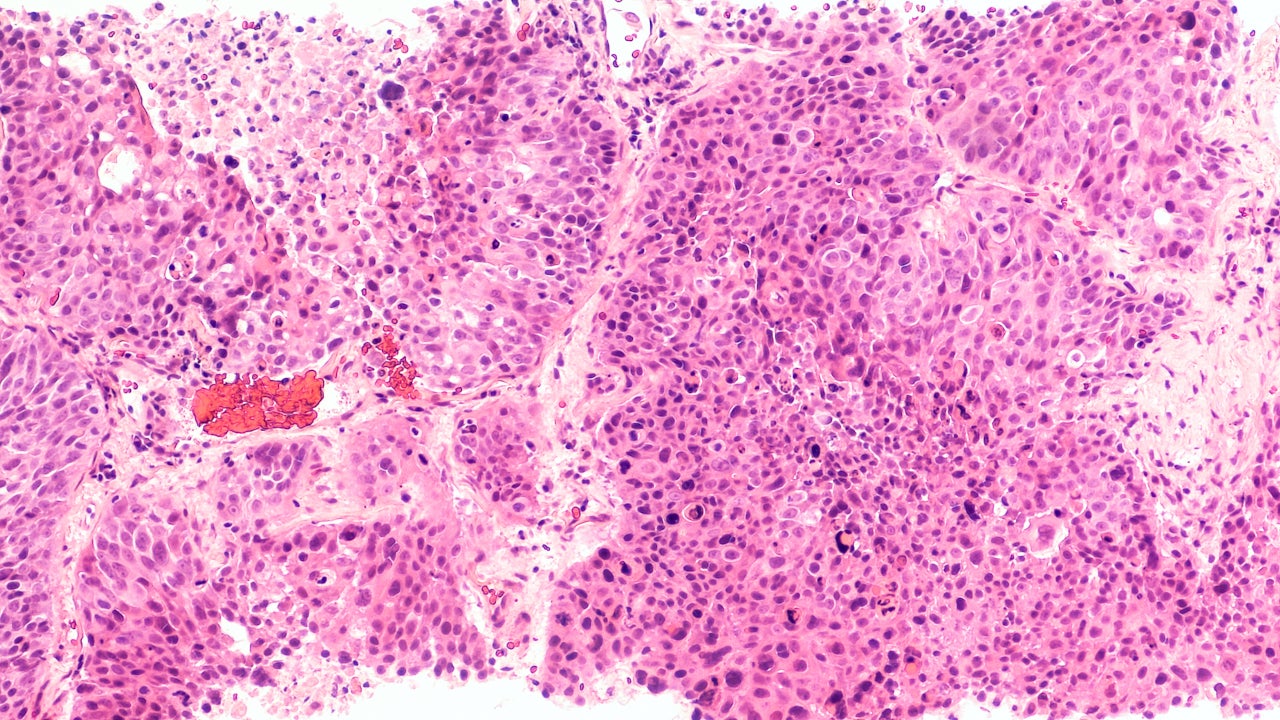Takeda Pharmaceuticals’ Phase III TAK-788 (mobocertinib) study in first-line (1L) EGFR exon 20 mutation non-small cell lung cancer (NSCLC) is on recruitment hold due to an ongoing futility analysis, two investigators said. The decision on whether the study will continue may be made in as soon as three months, both added.
The futility analysis was added to the 318-patient Phase III EXCLAIM 2 study to ensure the most promising approach is advanced for those who stand to benefit from 1L mobocertinib, said Christopher Arendt, Oncology Therapeutic Area Unit head, during an investor call on 29 January. Since then, the company has yet to announce further details on the futility analysis or if EXCLAIM 2 is in the process of this analysis. Takeda did not respond to a comment request.
EXCLAIM 2 had yet to reach its 318-patient target when it was put on hold, said the first investigator, who did not comment on the number of patients enrolled thus far. The trial is listed as Recruiting on ClinicalTrials.gov, with the trial enrolling its first patient on 6 January. The listing was last updated on 29 January.
The decision to amend EXCLAIM 2’s design to add a futility analysis is likely linked to updated Phase I/II mobocertinib trial efficacy data, the second investigator said. The Phase I/II’s primary endpoint of overall response rate (ORR), mobocertinib’s efficacy profile, dropped in more recent updates from earlier data releases. At the World Conference on Lung Cancer (WCLC) in January, mobocertinib’s confirmed ORR per independent review committee (IRC) was 28% in a 114-patient Phase I/II dataset. (Riely G, et al., Cancer Discov 2021 Feb 25; candisc.1598.2020). Mobocertinib’s confirmed ORR was previously 43% in a 28-patient dataset in the same trial, as per a November 2019 company presentation. ORR is an EXCLAIM 2 secondary endpoint.
Nonetheless, the second investigator noted mobocertinib’s single-arm Phase I/II progression-free survival (PFS) data, EXCLAIM 2’s primary endpoint, and duration of response (DOR) data are clinically significant. Mobocertinib has a median PFS of 7.3 months while the median DOR was 17.5 months, according to the WCLC presentation.
Chemo combo or patient enrichment could be considered
If the trial does not pass the futility analysis, then a new strategy for mobocertinib could be explored, the second investigator said. EXCLAIM 2 is designed to compare mobocertinib monotherapy against platinum-based chemotherapy as a 1L treatment in NSCLC patients with EGFR exon 20 insertion mutations in a 1:1 randomised design.

US Tariffs are shifting - will you react or anticipate?
Don’t let policy changes catch you off guard. Stay proactive with real-time data and expert analysis.
By GlobalDataOne potential strategy could involve mobocertinib in a combination approach such as with chemotherapy, as they have different safety profiles, the second investigator added. In the Phase I/II mobocertinib study, the most common reported adverse events leading to trial discontinuation were nausea and diarrhoea in 4% of patients each, and vomiting, decreased appetite, and stomatitis each recorded in 2% of patients.
Alternatively, a patient enrichment strategy could be pursued, the second investigator said. EXCLAIM 2 is currently enrolling patients with a documented EGFR exon 20 insertion mutation that is either alone or in combination with other EGFR or HER2 mutations. This is except for EGFR mutations for which there are approved anti-EGFR tyrosine kinase inhibitors.
In the January investor call, Arendt said the company has an ongoing expansion cohort to evaluate the combination of chemotherapy plus mobocertinib in 1L, with data to be compared with initial 1L mobocertinib monotherapy results. In the Phase I/II mobocertinib study, a Part 1A component was added that will study mobocertinib plus the chemotherapy combination of carboplatin and Eli Lilly’s Alimta (pemetrexed) at approximately three dose levels, as per changes made on 8 December at ClinicalTrials.gov. Participants would need to have an EGFR exon 20 insertion with or without anticancer treatments, or EGFR mutation other than exon 20 insertions that failed or did not tolerate prior anticancer therapies.
Takeda anticipates peak revenue potential for mobocertinib to be in the range of $300m–$600m in the 1L and second-line (2L) settings for EGFR exon 20 insertion mutation NSCLC, as per a 6 April company presentation. The company is targeting an FDA approval in the 2L setting in 2H21. Mobocertinib sales are estimated to be $685m according to GlobalData consensus forecast. Takeda has a $54.9bn (¥5.86trn) market cap.
This news service reported on 31 March that one of Takeda’s lead competitor, Janssen Pharmaceutical Companies’ amivantamab, has a competitive advantage over tumour kinase inhibitors like mobocertinib and Spectrum Pharmaceuticals’ poziotinib due to amivantamab’s higher ORR and safety profile in 1L. Janssen has decided to study amivantamab in combination with chemotherapy in an ongoing Phase III study in 1L.
Manasi Vaidya is a Associate Editor for Clinical Trials Arena parent company GlobalData’s investigative journalism team. A version of this article originally appeared on the Insights module of GlobalData’s Pharmaceutical Intelligence Center. To access more articles like this, visit GlobalData.





